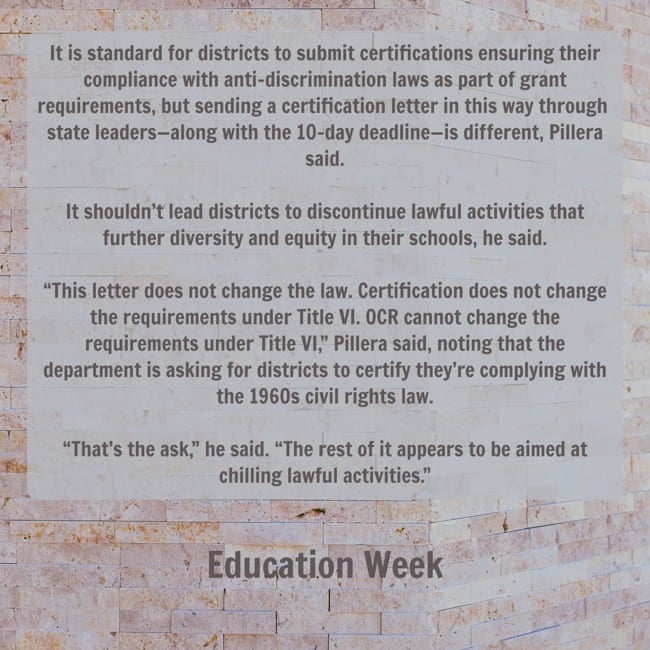Canadian expat tax guide: “If I work abroad, where do I pay taxes?”—and other questions answered
From severing ties and becoming a non-resident to learning about departure and withholding taxes, here’s what expats can expect if they move away from Canada. The post Canadian expat tax guide: “If I work abroad, where do I pay taxes?”—and other questions answered appeared first on MoneySense.

Figuring out where and how to pay taxes as an expat from Canada is just one of many things you must do if you move abroad for work. Statistics Canada estimates that 4 million working, retired and studying Canadians live outside of Canada. But before packing your bags, make sure you do some proactive financial and tax planning by consulting experts who can guide you.
Do I pay taxes in Canada if I move abroad?
Well, that depends. Brenda Hiscock, a certified financial planner with Objective Financial Partners in Markham, Ont., helps her clients understand what they need to do financially in Canada before leaving the country.
One of the first steps: Determine your tax residency either with the help of a professional accountant or by filing an NR73 with the Canada Revenue Agency (CRA). Absences of less than six months typically do not affect residency. “If you’re planning on leaving Canada with an indefinite return day for any longer than six months, you should strongly consider working with an expert to figure out what type of tax reporting is required and whether you meet the criteria to be a non-resident,” says Hiscock.
It’s required for Canadians to file a tax return when they’re leaving Canada and becoming as a non-resident, says Hiscock. “If the move is permanent or has an unknown return date, it is likely that the date of non-residency is the date that you depart from Canada, or the date your spouse departs, if you’re leaving separately. In some cases, it may be based on the closing date of your home if it is being sold,” she explains.
Your residency status is based on several factors, including residential ties with Canada and the length of time away, purpose of the departure and intent and continuity of the stay while living inside and outside Canada. When leaving Canada, CRA checks these main things:
- Where you reside
- Where your spouse resides
- Where your dependants reside
“If the answer to those three questions are that you are all habitually residing outside of Canada on a permanent/long-term basis then you are likely to be considered a non-resident.” Hiscock says to check with the CRA for other factors.
If you and your family move out of Canada, but you’re leaving an empty house behind that you own but aren’t renting out, this creates a “grey area,” cautions Hiscock. “In some cases, you may continue to be considered a ‘deemed resident’ or ‘factual resident’ of Canada.” Again, getting professional support and advice is strongly recommended in these cases. (You may also need to change your home insurance for a vacant house.)
Expect to file two tax returns in your first year abroad: Your exit tax return in Canada, which covers the period up until the date you left, and a tax return in your new country of residence as of the date you arrived there. Not sure whether your move is temporary or permanent? Consult with a financial planner or accountant to help you ensure that you’ve properly assessed your status, adds Hiscock.
“Once you are a non-resident, and have established residency in another country, you are generally no longer required to file a Canadian tax return unless you continue to earn Canadian-sourced income, such as a disposition of a property in Canada while being a non-resident.”
What is a departure tax?
Becoming a non-resident can result in an exit tax—also known as a departure tax—on capital gains on non-registered investments in the year you leave Canada. You’ll need to complete a T1243 form if you’re deemed to have disposed of certain types of investments.
Hiscock says that if you leave Canada and sever ties by becoming a non-resident, “CRA says, ‘OK, we’re going to act as if you sold your assets, and we’re going to tax you on any gain at the time of your exit.’”
Principal residences, registered retirement savings plans (RRSPs), tax-free savings accounts (TFSAs), first home savings accounts (FHSAs) and registered education savings plans are all exempt from the departure tax. But you’ll pay tax on any gains from non-registered assets and private company shares. In some cases, the departure tax can be deferred. Hint: check with a planner.
Here’s an example of departure tax on a non-registered investment: “If I bought a stock for $100,000 that’s now worth $200,000, then I have an unrealized capital gain of $100,000. If I leave Canada, the CRA will tax me on that $100,000 gain,” says Hiscock. (Capital gains taxes can be confusing, but here’s an explainer: Capital gains tax, explained)
What happens to my registered accounts and pension income as an expat?
The income you earn from registered accounts or your pension is treated differently when you move abroad, explains Hiscock.
“In Canada, all the growth on our TFSA is tax-free, but that’s not the case in other countries,” says Hiscock.
Canadians often go abroad and think the growth in their TFSA continues to be tax-free. “In Italy and the U.S. and most other countries that tax on worldwide income, the growth may be taxed, so it’s important to notify your tax preparer in your new country of residence if you keep your TFSA,” she says. She adds that RRSPs are viewed as tax shelters in most countries where Canada has a tax treaty—but never assume anything. A planner from your new country of residence can help you make decisions that best suit you and your finances.
Also, earning income in Canada can be tricky too. Say you leave Canada as a non-resident and you make an RRSP withdrawal or earn Canada Pension Plan (CPP), Old Age Security (OAS) and/or dividend income; this money would be subject to withholding taxes, adds Hiscock. The same for Canadian-sourced employment income. In many cases, the CRA will apply withholding taxes to Canadian-sourced income. The applicable percentage depends on the tax treaty (or lack thereof) in the country where you reside.
“That money is taxable in Canada, but as a non-resident, it’s withheld at a specific rate. If you’re in Canada, your overall income determines your tax rate using our graduated tax system,” says Hiscock. “Non-residents are subject to withholding tax rates of up to 25% of income and/or withdrawal amounts, depending on the existence and wording of tax treaties.”
In some cases, non-residents may complete a tax return for income in Canada to get some of the withholding tax back. “For example: If you own a rental property, the payer must withhold 25% and remit to revenue Canada,” says Hiscock. “A non-resident can choose to file a Canadian tax return for the rental income and deduct expenses, and may receive a refund if the 25% withheld was too high.”
Earning, saving and spending in Canada: A guide for new immigrants
Since most people probably don’t consider reciprocal tax treaty relationships when they’re choosing somewhere to live, consult a financial pro to guide you. On the Government of Canada’s website, you can plug in the country you’re headed to, along with the Canadian income you expect to earn to calculate exactly what the withholding tax rate will be.
For example, if you’re moving to Portugal and will be receiving dividend income, the withholding tax rate is 15%. Collecting OAS in Denmark? You’ll be charged a withholding tax rate of 25%.
Hiscock says people often think their exposure to tax is much greater than it actually is.
“People think they have to pay tax on every dollar they have in their non-registered investments, but it’s only on the gains,” she says.
What costs can I expect as an expat?
In addition to the tax implications you’ll face, there are other costs associated with relocating abroad, like shipping your personal items and travel to and from your new country if you plan on visiting family. Also, banks tend to charge high exchange rates, so educate yourself about other currency transfer options, advises Hiscock.
For transfers, “big firms like Wise or OFX offer more favourable rates, and if you’re getting CPP or OAS, you can have those put into foreign bank accounts as well,” she says.
And don’t forget: Canadian healthcare coverage eventually expires for expats. According to the CRA, your provincial health plan might cover some of your medical expenses outside the country should you get injured or sick, but you’ll have to pay those fees up front. And after six to eight months, your coverage becomes invalid.
“I’m always talking to people about health insurance, disability insurance and life insurance. In Canada, disability insurance is often a part of your employment package but that’s not the case for many people working overseas, so build those into your budget,” suggests Hiscock. “Find a broker that can assist with expat insurance.”
Set up an emergency fund to cover three to six months of expenses. This is advisable for everybody, including residents of Canada, but even more so for expats, who face higher risks. “And if you don’t have a job, then set aside a significant emergency fund, depending upon your situation,” suggests Hiscock.
Talk to other expats
The more information and lessons learned you collect from other expats, the better off you’ll be, says Judith Asher, a Montreal-born executive and leadership coach who moved to Italy 20 years ago with her Danish-born husband. The language barrier and not understanding how Italy’s taxation system worked when setting up her own consulting company proved challenging.
“When I first moved to Italy, there was much less information and advice available online from other expats about sorting out financial issues—Italy is notorious for its bureaucratic and often-changing financial rules,” she recalls.
“Until my Italian language abilities improved, I was unable to understand official government websites on my own and had to rely on others to explain the rules to me, which left me feeling frustrated and disempowered.”
Asher also wrongly assumed that when speaking with local accountants, she would be given options and financial advice that was in her best interest.
“I wish I’d known to ask probing questions like: ‘What else might I do to lower my tax burden?’, ‘What other deductions could I claim that we have not spoken about?’, ‘How might opening a company be more/less beneficial than being a freelance professional in terms of taxation and bureaucratic burden?’, ‘After I make these payments, what other payments will need to be made and when?’ and ‘What kind of documentation do I need to keep in order to claim deductions?’,” she says.
Asher suggests expats ensure they understand their residency status and tax obligations by getting professional advice in advance from an accountant or lawyer in Canada with an expertise in the country you want to move to.
“Before seeking advice from local financial advisors, arm yourself with as much knowledge as possible including specific questions to ask—you’ll get more bang for your buck and avoid any nasty surprises, like dual taxation,” she says.
Asher also advises expats to investigate new tax-beneficial immigration programs.
“For example, Italy recently set up a visa program called Digital Nomad to attract professionals who can work remotely. It provides great tax benefits and would allow someone to try out living in Italy,” she explains.
Expect complications
Daniel Ferreira, an engineer from Montreal, moved to Copenhagen in 2019 to work on the city’s metro extension project. Because his parents are from Portugal, he has both a Canadian and a Portuguese passport, which he says made things easier.
“The system in Copenhagen is pretty efficient. I didn’t have to pay to get my resident card—which is also my healthcare card—which was nice,” he recalls.
However, Ferreira discovered that acquiring a Central Person Register number—a civil registration number assigned to residents like a social security number in Canada—can be tricky. You must have proof of residence for more than three consecutive months, and have a job.
“It’s a double-edged sword: You need a work contract to get a CPR number, and you can’t get a work contract without a CPR number, so a lot of people just ask for the CPR number to get a work contract,” he says.
When Ferreira’s contract ended seven months later, he returned to Canada. In 2022, he went back to Copenhagen—this time without a job waiting for him.
“I had a network here, and figured it’d be easy enough to get a job in engineering, but that didn’t happen,” he recalls.
As money ran low, Ferreira picked up work as a waiter to pay his bills. Before long, he fell in love with the chef and the couple opened their own restaurant, Yankees and Canucks, at an outdoor food market last spring.
“My biggest expat tip: Make sure you have a job lined up first. Don’t do what I did the first time—or the second,” he laughs.
Best low interest credit cards in Canada
Keep your taxes in good standing
Thinking of winging it by becoming a digital nomad and not filing a Canadian tax return? Think again, warns Hiscock. Not filing in these kinds of situations may result in penalties, including legal action.
Some have thought, “I live on a boat, so I don’t have to be a resident anywhere.” Well, Canada doesn’t allow people to be a resident of nowhere, Hiscock says. “If you’re living on a boat, you would likely remain a resident of Canada unless you had closer ties with another country.”
Avoiding taxes can affect your ability to get government benefits in the future. And it can create problems if you’re moving from country to country.
The Canadian government provides lots of information to educate and help prepare you for the big move, and CRA’s step-by-step tax guide can help you plan the big move. Check your provincial or territorial website, too.
Becoming an expat is a great adventure that can be made much simpler by working with a tax professional or financial planner, adds Hiscock.
“Ensure you’re severing your ties properly, setting yourself up, and reporting your tax in your new country correctly,” she explains. “Sometimes, more than one expert is needed to get everything done. But it’s money well spent.”
Read more about taxes:
- Tax due dates, credits and more: Your 2024 income tax return guide
- Moving? Don’t miss these tax deductions on your moving expenses
- “I have receipts”: Why you need to keep Canada income tax documents
- How are bonuses taxed in Canada?
The post Canadian expat tax guide: “If I work abroad, where do I pay taxes?”—and other questions answered appeared first on MoneySense.











































































